V Constitutional Government

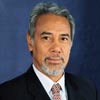
Prime Minister
Kay Rala Xanana Gusmão
The Prime Minister has its own competence and that delegated under the Constitution and the Law.
It is especially incumbent upon the Prime Minister, to lead the Government and to preside over the Council of Ministers; to direct and guide overall policy of the Government and the governing action; represent the Government and the Council of Ministers in their relationship with the President of the Republic and the National Parliament; to coordinate the institutional strengthening of the State institutions, the support to the development of the national business community, and the administrative decentralization.
The following services and organisms are under the direct purview of the Prime Minister: National Development Agency; National Procurement Commission; Economic Planning and Investment Agency; General State Inspectorate and the National Intelligence Service.
The Prime Minister is assisted by the Vice Prime Minister, Coordinator of Social Affairs and by the Minister of State and of the Presidency of the Council of Ministers according to their own responsibilities.
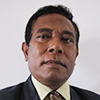
Vice Prime Minister and Coordinator of Social Affairs
Fernando La Sama de Araújo
The Vice Prime Minister and Coordinator of Social Affairs assists the Prime Minister in the supervision of the general policy of the governing areas with eminently social nature. He takes specific responsibility over the work and activities of the Secretariat of State for Youth and Sports, the Secretariat of State for Professional Training and Employment Policy and the Secretariat of State for the Promotion of Equality, integrated on the Presidency of the Council of Ministers.
The Prime-Minister delegates on the Vice Prime Minister, Coordinator of Social Affairs, his coordination powers over the Minister for Health, the Minister for Education and the Minister for Social Solidarity, on everything concerning the provision of services.
In the case of natural disasters, it is upon the Vice Prime Minister Coordinator of Social Affairs, the responsibility for the interministerial coordination.

Minister State and of the Presidency of the Council of Ministers
Agio Pereira
The Minister of State and of the Presidency of the Council of Ministers assists the Prime Minister in the Presidency of the Council of Ministers and in the coordination of the Government, and takes on the functions of spokesperson of the Government.
On the Minister of State and of the Presidency of the Council of Ministers are delegated the following competences: coordinating the preparation and organization of governmental work, as well as the follow-up and evaluation of the decisions taken by the Council of Ministers and by the Prime Minister; coordinate the dissemination of the actions and measures of the Government and organizing the structure and approach of its public intervention; coordinating the support and legal advisory to the Council of Ministers, the Prime Minister and other Government Members, integrated in the Presidency of the Council of Ministers; coordinating and centralizing the Government’s legislative and regulatory process, formally, in legislative standardization and harmonization and, thus, in the evaluation of the need for governmental intervention; promote the modernization of the legislative procedure, including through the use of instruments of e-government; analysing and preparing the drafts of the Government’s legal and regulatory diplomas, coordination with the proponent ministries; ensuring litigation services of the Presidency of the Council of Ministers; representing the State, through its legal advisory services, in proceedings in which the State is part; Responding to procedures aiming to verify constitutionality and legality, in collaboration with the respective ministry; translating or following up the translation of legal diplomas or other documents necessary to the action of the Council of Ministers or the Prime Minister; representing the Council of Ministers and the Prime Minister, when he so decides, in ad hoc committees; to promote and supervise the entities responsible for training and improvement of the public servants and the role of spokesperson for the Council of Ministers.
It is also incumbent upon the Minister of State and of the Presidency of the Council of Ministers the supervision of the following Secretaries of State included in the Presidency of the Council of Ministers: Secretary of State of the Council of Ministers; Secretary of State for Parliamentary Affairs; Secretary of State for Media; Secretary of State for Institutional Strengthening and Secretary of State for Support and Promotion of the Private Sector.
In also upon him the supervision of the Technical Training Centre in Communication (TTCC) and the Civil Service Commission, from which the National Institute of Public Administration is part, that integrate the Presidency of the Council of Ministers.
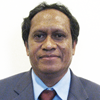
Minister of State and of Foreign Affairs and Cooperation
José Luís Guterres
The Ministry of Foreign Affairs and Cooperation is the central Government body, responsible for the design, implementation, coordination and evaluation of the policy, set out and approved by the Council of Ministers, for the areas of international diplomacy and cooperation, consular functions and promotion and defence of the interests of the Timorese living abroad.
It is upon the Minister of State and for Foreign Affairs to plan, propose and execute the foreign policy of Timor-Leste guaranteeing its unity and coherence; To prepare draft laws and regulations for the areas under its supervision; negotiate and propose the establishment of international treaties and agreements following Timor-Leste’s external policy’s priorities; promoting Timor-Leste’s interests overseas and ensure the protection of Timorese citizens abroad; to ensure the representation of Timor-Leste in other States and International organizations and manage the network of embassies, missions, permanent and temporary representations and consular offices, according to the priorities of external policy; to plan and implement the preparation for the adhesion of Timor-Leste to the Association of Southeast Asian Nations (ASEAN) and ensure the country’s representation in the due meetings and activities; propose and execute the international cooperation policy, in coordination with the Ministry of Finance and other competent governmental institutions; coordinate, together with the Ministry of Finance and other government’s competent departments, Timor-Leste’s relations with the development partners; perform the assigned functions related to matters of economic diplomacy and establishing collaboration and coordination mechanisms with other Government bodies with supervision over related activity areas .
The Minister of State and for Foreign Affairs is assisted by the Vice Minister for Foreign Affairs and Cooperation and by the Secretary of State for ASEAN Affairs.

Minister Defence and Security
Kay Rala Xanana Gusmão
The Ministry of Defence and Security is the central body of the Government, responsible for the design, execution, coordination and evaluation of the policy defined and approved by the Council of Ministers, for the areas of national defence, military cooperation, public security, criminal investigation and immigration.
It is incumbent upon the Minister for Defence and Security to: propose the policy and prepare the necessary regulation drafts for the areas under its responsibility; celebrate, in coordination with the Ministry of Foreign Affairs, international agreements on defence and military cooperation; administrate and oversee the Armed Forces of Timor-Leste; promote the adequacy of military means; oversee maritime and aerial navigation aimed at military purposes; exercise supervision over Timor-Leste’s police forces; promote the adequacy of police means; watch over the safety of State’s real estate; supervise and control the exercise of private security’s activities; promote the development of strategies for prevention, mediation and resolution of community conflicts; be responsible for the migration services; supervise maritime and aerial navigation with civilian purposes; ensure the safety of people and property in case of fire, floods, landslides, earthquakes and all situations that endanger them; develop, in coordination with other competent entities, civic education programs to address natural or other disasters caused by human action, cementing social solidarity and establish mechanisms for collaboration and coordination with other Government bodies responsible for related areas.
The Ministry of Defence and Security is assisted by the Secretary of State for Defence and the Secretary of State for Security.

Minister of Finance
Emília Pires
The Ministry of Finance is the central body of the Government, responsible for the design, implementation, coordination and evaluation of the policy, outlined and approved by the Council of Ministers, for the areas of budget and finance annual planning and monitoring.
The Minister for Finance has competences to propose monetary and exchange policies in collaboration with the Central Bank; propose the policy and elaborate the necessary regulation projects on macroeconomics, of tax and nontax revenues, budget framework, procurement, public accounting, public finance, audit and control of the State treasury, issuing and management of public debt; managing the Petroleum Fund of Timor-Leste; coordinate projects and programs between Timor-Leste and Development Partners, in conjunction with the Ministry of Foreign Affairs and Cooperation; manage external public debt, the state shareholdings and partnerships for Development and is responsible for the coordination and definition of financial and fiscal aspects; manage the patrimony of the State, without prejudice to the powers of the Ministry of Justice in respect of real state patrimony; promote the state management policy in terms of movable assets , in collaboration with other public authorities; manage the supply of procured goods for all ministries; negotiate, sign and manage the implementation of contracts for public-private partnerships , ensuring their financial assessment with a view to appropriate sharing of risks between the state and the private partner and the sustainability of each project; prepare and publish official statistics; promote the necessary regulations and exercise financial control over the expenditure of the state budget that are allocated to other ministries, in view of pursuing a policy of greater financial autonomy for the services; look after the sound management of the funds transferred by the State Budget, by the organs of indirect state administration and local governance bodies, through audits and monitoring, coordinate international and national technical assistance in terms of technical advisory to government agencies, except for the areas of human resources training; develop information systems for financial management in all departments and agencies of the Public Administration in conjunction with the development of the process of e-government and establish mechanisms for collaboration and coordination with other Government bodies responsible for related areas .
The Minister for Finance is assisted by the Vice Minister for Finance.

Minister of Justice
Dionísio Babo Soares
The Minister for Justice is the central body of the Government, responsible for the design, execution, coordination and evaluation of the policy, outlined and approved by de Council of Ministers, for the areas of justice, law and human rights.
It is upon the Minister for Justice to propose the policy and draft the legislation and regulation projects essential to the areas under his supervision; regulate and manage the Legal Training Centre and the training of criminal investigators, for the different areas of expertise; regulate and manage the prison system, sentence execution and social reintegration; ensure the appropriate mechanisms for access to justice and the courts, especially to the most underprivileged citizens, in the fields of legal information, legal advice and legal assistance, namely through the Public Defender Office and other entities and structures of justice; create and guarantee the appropriate mechanisms to ensure the rights of citizenship and promote the disclosure of applicable laws; organize the registry of rustic and urban buildings and the registry of immovable assets; manage and supervise the service system of registry and notary; administrate and perform the current management of the State’s immovable assets; promote and guide the legal training of judicial careers and of the remaining public servants; ensure international affairs in the field of Justice policy, especially with other governments and international organizations, without prejudice to the specific competences of the Ministry of Foreign Affairs and Cooperation and establishes collaboration and coordination mechanisms with other Government Bodies responsible for related areas.
The Minister for Justice is assisted by the Vice Minister for Justice and the Secretary of State for Land and Property.

Minister of Health
Sérgio Lobo
The Minister for Health is the central body of the Government, responsible for the design, execution, coordination and evaluation of the policy, outlined and approved by the Council of Ministers, for the areas of health and pharmaceutical activities.
Therefore, it is upon the Minister for Health to propose the policy and draft the necessary regulation projects for the areas under its responsibility; ensure access to health care for all citizens; coordinate the activities related to the control of epidemics; perform the health control of the products influencing human health; promote the training of health professionals and contribute to the success of humanitarian assistance, promotion of peace, security and socioeconomic development, through coordination and collaboration mechanisms with other Government bodies, with responsibility over related areas.
The National Health Institute, the Autonomous Service of Medicines and Medical Equipment (SAMES) and the National Laboratory are under the responsibility of the Ministry of Health.
The Minister for Health is assisted by the Vice Minister for Ethics and Service Delivery and by the Vice Minister for Management, Support and Resources.
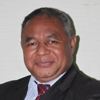
Minister of Education
Bendito Freitas
The Ministry of Education is the central body of the Government, responsible for the design, execution, coordination and evaluation of the policy, outlined and approved by the Council of Ministers, for the areas of education and qualification, as well as for the areas of science and technology.
It is for the Minister for Education to propose and ensure policies related to preschool and school education, including basic and secondary education and special education, to the promotion of recurrent teaching and life learning; participate in the definition and execution of policies for qualifying and professional training; guarantee the right to education and ensure compulsory education, to promote inclusion and equality of opportunities; reinforce teaching and learning conditions, thus contributing to the qualification of the population and the improvement of school success and employment; set the national curriculum in the various teaching levels and the system of student assessment and approve teaching programs, as wells as the guidelines of its concretion; promote and manage the development and requalification of school facilities, in public non tertiary teaching institutions, as well as supporting the initiatives within the private and cooperative education; planning and administration of human resources, in coordination with Civil Service Commission, as well as the material and financial resources allocated to the education system; designing policy measures for the areas of higher education, science and technology as well as the due organization, funding, execution and evaluation; promote equality of opportunities in the access to higher education; promote the development, the modernization, the quality, the competitiveness and the international acknowledgement of higher, scientific and technological education systems; promote the connection between the higher, scientific and technological education institutions and between these and the productive system; develop and implement a competitive and transparent scholarships policy; promote the permanent evaluation and inspection of establishments of higher, scientific and technological education promote the evaluation of the education professionals and plan a system of analysis and monitoring in order to evaluate the results and impacts of policies on education and training.
The National Institute of Training of Teachers and Education Professionals (NITTEP) and the National Agency for the Evaluation and Academic Accreditation (NAEAA) are under the responsibility of the Minister for Education.
The Minister for Education is assisted by the Vice Minister for Basic/Primary Education, by the Vice Minister for Secondary Education and by the Vice Minister for Higher Education.
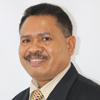
Minister of State Administration
Jorge Teme
The Ministry of State Administration is the central body of the Government, responsible for the design, execution, coordination and evaluation of the policy, outlined and approved by de Council of Ministers, for the areas of local power, administrative decentralization, local and rural development, organization and execution of electoral and referendum processes and preservation of official documents.
It is up to the Minister for State Administration to promote and implement policies for local and rural development and reduction of economic and social inequalities between regions; coordinate and distribute internal and external information to structures of Local State Administration; coordinate and supervise the activities of districts and subdistricts administration and other services and local government bodies; coordinate and supervise the activities of the departments and agencies of the regional and local administration; promote and lead the process of administrative decentralization and the creation of municipalities; ensure adequate technical support to electoral processes and referendum; promote the restoration, preservation and proper custody of historical and official documents of the country, including the ones of public administration; promote and develop rules and instructions related to the classification, processing and archiving of historical and official documents of the country, including the public administration and establish mechanisms for collaboration and coordination with other Government bodies with responsibility over related areas .
The Minister for State Administration is assisted by the Secretary of State for Administrative Decentralization and by the Secretary of State for Local Development.
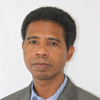
Minister of Commerce, Industry and Environment
António da Conceição
The Ministry of Commerce, Industry and Environment is the central body of the Government responsible for the design, execution, coordination and evaluation of the policy defined and approved by the Council of Ministers for the areas of economic, commercial, industrial and cooperative sector activities as well as of the environment.
It is for the Minister for Commerce, Industry and Environment to propose policies and elaborate the draft regulations, necessary to the areas under his responsibility; design, implement and evaluate policies on trade, industry and the environment; contribute to boosting economic activity, including in what regards national and international competitiveness; support the activities of economic agents, promoting the necessary steps to solutions that make the procedures simpler and quicker; evaluate and attribute licenses to projects of facilities and operation of commercial and industrial undertakings; inspect and supervise the activities and commercial and industrial undertakings, under the law; maintain and manage a centre for information and documentation on companies; propose the qualification and classification of industrial enterprises, in accordance with applicable law; promote the development of the cooperative sector, especially in rural areas and in agriculture, in coordination with the Ministry of Agriculture and Fisheries; disseminate the importance of the cooperative economic sector and micro and small enterprises and to promote training in the creation, organization, management and accounting of cooperatives and small businesses; organize and manage a register of cooperatives, organize and administer the registration of industrial property; promote internal rules and international standardization, metrology and quality control, unit measurement standards and units of physical magnitude; develop environmental policy and assess the results achieved; promote, monitor and support strategies for integrating the environment into sectoral policies; make strategic environmental assessment of policies, plans, programs and legislation and coordinate the processes of environmental impact assessment of projects nationwide, including consultation procedures and ensuring, in general and in terms of environmental licensing, the adoption and enforcement of preventive and integrated pollution control measures for facilities covered by it.
The Minister for Commerce, Industry and Environment is assisted by the Vice Minister for Commerce, Industry and Environment, the Secretary of State for Commerce, the Secretary of State for Industry and Cooperatives and the Secretary of State for Environment.
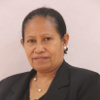
Minister of Social Solidarity
Isabel Guterres
The Ministry of Social Solidarity is the central body of the Government responsible for the design, implementation, coordination and evaluation of the policy defined and approved by the Council of Ministers, for the areas of social security, social assistance, natural disasters and community reintegration.
It is upon the Minister for Social Solidarity to design and implement social security systems for workers and the remaining population; develop programs of social assistance and humanitarian aid to the most disadvantaged; propose and develop policies and strategies in disaster risk management; develop and implement programs of disaster risk management, namely, on civic education, prevention, mitigation, emergency response and disaster recovery; promote programs of demobilisation, retirement and pensions to give to the Combatants for National Liberation; provide the follow up and social inclusion of veterans and Combatants for National Liberation; provide the follow up, protection and community reintegration of other vulnerable groups and establish cooperation and coordination mechanisms with other Government bodies with responsibility over connected areas.
The National Rehabilitation Centre is under the responsibility and supervision of the Minister for Social Solidarity.
The Minister for Social Solidarity is assisted by the Vice Minister for Social Solidarity, the Secretary of State for Social Security and the Secretary of State for the Combatants for National Liberation Affairs.

Minister of Public Works
Gastão Francisco de Sousa
The Ministry of Public Works is the central body of the Government responsible for the design, implementation, coordination and evaluation of the policy defined and approved by the Council of Ministers, for the areas of public works, housing, urban development, water supply, sanitation and electricity.
It is upon the Minister for Public Work to propose and implement the policy guidelines of the Ministry, in the areas of public works, housing, urban planning, infrastructure, road network in coordination with the Ministry of Transport and Communications, water supply, sanitation and electricity; ensure the implementation and enforcement of the legal and regulatory framework for the activities related with the activities of the Ministry; create and implement the legal and regulatory framework of the civil construction activity and the research over construction materials; study and perform works for the protection, maintenance and repair of bridges, roads, river coasts and sea coasts, namely concerning flood control; promote the study and implementation of new infrastructural network systems pertaining to the distribution of water and sanitation, and inspect their operation and exploitation, without prejudice to the tasks of these areas attributed to others organisms; propose and develop a national housing policy and spatial planning; propose and develop the urban planning; establish the coordination and promote the quality of the physical projects executed by the state; promote the completion of construction, maintenance and repair of public buildings, monuments and special facilities, where such is legally committed; promote the adoption of technical standards and regulations for the materials used in civil construction, as well as develop laboratory tests to ensure the safety of buildings; license and supervise all urban buildings, including private, municipal or of autonomous entities, in accordance with the applicable law; maintain and develop a national information and monitoring system on the state of works and civil construction materials, including the effects of floods on infrastructures; ensure the coordination of the renewable energy sector and encourage complementarity between its various modes, as well as their competitiveness, in order to a better customer satisfaction; develop the legal and regulatory framework related to renewable energy resources; regulate, in coordination with other ministries, the operators in the production of electricity; develop studies on the capacity of renewable energy resources and alternative energies; keep information files on operations and renewable energy resources and establish mechanisms of collaboration and coordination with other Government bodies responsible for related areas.
The Equipment Management Institute is under the responsibility and supervision of the Minister for Public Works.
The Minister for Public Works is assisted by Secretary of State for Public Works, the Secretary of State for Electricity and the Secretary of State for Water, Sanitation and Urban Development.
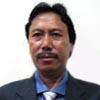
Minister of Transport and Communications
Pedro Lay
The Ministry of Transport and Communications is the central body of the Government responsible for the design, implementation, coordination and evaluation of the policy defined and approved by the Council of Ministers, for the areas of civil land, sea and air transportation and auxiliary services, communications, including postal, telegraphic and phone services, and other telecommunications, meteorological services and information technology.
Therefore, it is upon the Minister for Transport and Communications to: propose the policy and elaborate the regulation drafts necessary to his areas of responsibility; ensure the implementation and enforcement of the legal and regulatory framework for the activities related to the ministry; prepare and develop, in cooperation with other public services the implementation of the road plan for the national territory; develop and regulate communications activity and optimize the communication structures; ensure the coordination of the transport sector and stimulate the complementarity between its various modes, as well as its competitiveness, in order to a better customer satisfaction; promote the management, as well as the adoption of technical and regulation standards, concerning the public use of communication services; ensure the provision of public telecommunications services and the use of airwaves through public entities or the granting of public service delivery to private entities; maintain and develop the national information and monitoring systems of meteorological and seismological activity, including the construction and maintenance of infrastructure; manage the information technology system of the Government and ensure the provision of its services as well as implement IT systems across the country; promote and coordinate scientific research and technological development in the fields of land, air and maritime civil transportation and coordinate and promote the management, maintenance and the modernization of infrastructures: airports, aerial navigation, roads, ports and connected services.
Under the responsibility and oversight of the Ministry of Transport and Communications are: the Port Administration of Timor-Leste; the Civil Aviation Authority of Timor-Leste; the Aerial Navigation and Airports of Timor-Leste, and the National Communications Authority.
The Minister for Transport and Communications is assisted by the Vice Minister for Transport and Communications.

Minister of Agriculture and Fisheries
Mariano Assanami Sabino
The Ministry of Agriculture and Fisheries is the central body of the Government responsible for the design, implementation, coordination and evaluation of the policy defined and approved by the Council of Ministers, for the areas of agriculture, forestry, fisheries and livestock.
It is upon the Minister for Agriculture and Fisheries to purpose the policy and elaborate the regulation projects necessary for the areas under his responsibility: to ensure the implementation and continuity of rural development programs, in coordination with the Ministry of Commerce, Industry and Environment; create technical assistance centres for farmers; manage technical and agricultural education; promote agrarian investigation; control the use of land for agricultural and livestock production; promote and supervise animal health; promote the industries of agriculture, livestock and fisheries; oversee food production; manage the Quarantine Services; promote rural development, in coordination with the Ministry of Commerce, Industry and Environment , implementing a cooperative system of production and marketing of agricultural production; carry out feasibility studies for the installation of irrigation systems; manage, in coordination with the Ministry of Commerce, Industry and Environment, forest resources and watersheds; manage water meant for agricultural purposes; manage and monitor fisheries and aquaculture; establish mechanisms for collaboration and coordination with other Government bodies responsible for related areas; manage National Parks and Protected Areas and ensure the protection and conservation of nature and biodiversity, overseeing implementation of the policy and monitoring activities detrimental to the integrity of the national fauna and flora, in collaboration with related entities.
The Minister for Agriculture and Fisheries is assisted by the Vice Minister for Agriculture and Fisheries, the Secretary of State for Forestry and Nature Conservation, the Secretary of State for Fisheries and the Secretary of State for Livestock.

Minister of Tourism
Francisco Kalbuadi Lay
The Ministry of Tourism is the central body of the Government responsible for the design, implementation, coordination and evaluation of the policy defined and approved by the Council of Ministers, for the areas of tourism and culture.
It is upon the Minister for Tourism to: propose the policy and elaborate the regulation projects, necessary for the areas under his responsibility; design, implement and evaluate the tourism policy; contribute to boosting the tourism sector and to propose measures and public policies, relevant to its development; support the activities of economic agents in the tourism sector, by promoting the necessary steps to implement the solutions that make, the licensing process, simpler and quicker; give opinion on requests for information, prior to the establishment of tourism enterprises; appreciate and license facilities and operations of tourism enterprises; supervise, inspect and monitor recreational games and tourism projects, under the law; maintain and manage an information and documentation centre on businesses and activities of the tourism sector; suspend or revoke the license for operation of tourism activities, in accordance with the law; qualify and classify tourism projects, according to the applicable law; elaborate the annual plan of promotional activities for the development of tourism with estimated costs; implement and enforce legislation on the installation, licensing and condition’s checking of tourism facilities; establish mechanisms for collaboration with other government departments and agencies, with responsibility for related areas, including services responsible for the urban planning and physical development of the territory, with the aim of promoting strategic areas for touristic development; collaborate with organizations and public authorities in the promotion and dissemination of Timor-Leste with investors and tour operators, ensuring the dissemination of the necessary information; supervise the touristic and cultural events; elaborate the policy and regulations for the conservation, protection and preservation of historical and cultural heritage; propose policies for the definition and development of culture; establish policies for cooperation with UNESCO; promote the creation of the National Library and the National Museum; develop programs, in coordination with the Ministry of Education, to introduce culture in the education in Timor-Leste; ensure the proper preservation of official and historical documents, promoting the creation of the Academy of Arts and Creative Industries of Timor-Leste and protect the rights to artistic and literary creation.
The Minister for Tourism is assisted by the Secretary of State for Art and Culture.

Minister of Petroleum and Mineral Resources
Alfredo Pires
The Ministry of Petroleum and Mineral Resources is the central body of the Government responsible for the design and execution of the energy and mineral resources management policy, including oil and other strategic minerals, approved by the Council of Ministers, as well as for the licensing and regulation of the extractive activity, as well as the activities of the mining and oil industries; including petrochemicals and refineries.
The Minister for Petroleum and Mineral Resources has the following competencies: elaborate and propose the policy and the draft-laws of the sector; establish the system of administration and sectorial management and regulate the activities of the sector; ensure the maximum participation of Timor-Leste in the activity of the oil and mineral resources’ sector, through the adequate legal, administrative and technical instruments; promote national opportunities in the sector, in order to attract and retain foreign investment; monitor the implementation of the Treaties and monitor the execution of relevant sectorial instruments; lead, under the direct supervision of the Prime Minister, the negotiation process concerning the development model of the Greater Sunrise field or other matters related to the exercise of jurisdiction in the Timor Sea; coordinate the execution of the Tasi Mane project and license and monitor the activities developed in territorial areas dedicated to the Tasi Mane project; determine, in accordance with the general conditions prescribed by law, the specific contractual terms of prospection and exploitation of petroleum resources and mining licenses; ensure the minimum reserve requirements for fuels and their delivery to public units of energy production; regulate, authorize and supervise downstream activities, particularly, exportation, transportation, storage, distribution and marketing, wholesale or retail, including the importation of crude oil, its derivatives and minerals; authorize and license downstream of the extraction, projects related to the industries for processing, beneficiation, treatment, conversion of processing of crude oil, its derivatives and minerals, including refineries, liquefaction, gas or petrochemical plants; considering the complexity and technical specialty of the oil and mineral resources’ sector, approve environmental permits in this sector, in coordination with competent authorities in the area of environment; exercise the powers of supervision and responsibility of the indirect administration of the institutional and business sector of the state and develop knowledge and investigation of the geological structure of the soil and subsoil and the national hydrogeological resources.

Vice Minister of Foreign Affairs and Cooperation
Constâncio da Conceição Pinto
It is upon the Vice Minister for Foreign Affairs and Cooperation to assist the competent Minister: supervise the administration and finance management services; present and implement a plan on training and capacity building of human resources, in the areas of diplomacy and international affairs, and cooperate and coordinate with other Ministries, especially the Ministry of Finance, in every subject related to international cooperation.

Vice Minister of Finance
Santina Cardoso
It is delegated upon the Vice Minister for Finance the operationalization of the strategies and policies defined by the competent Minister.
The Vice Minister for Finance assists the Minister for Finance.

Vice Minister of Justice
Ivo Jorge Valente
It is upon the Vice Minister for Justice to manage and administrate the human resources under the Ministry and integrated organisms; the authorisation of expense, including CPVs, until the limit legally admitted to the Minister, according to the limits of the budget approved for the Ministry and its agencies and services; the authorization for the opening of procurement processes, awarding and signing of contracts, up until the maximum authorized by law to the Minister; the authorization for transference of funds (budget amendments) until the maximum extent permitted by law and the issues related to the logistics of the equipment and vehicles from the Ministry and current management of computing and information systems.
The Vice Minister for Justice assists the Minister for Justice.

Vice Minister for Ethics and Service Delivery
Natália de Araújo
To the Vice Minister for Ethics and Service Delivery are delegated the competences of the Minister related to the training of professionals from medical careers and remaining staff, especially on what concerns to customer assistance.
The Vice Minister for Ethics and Service Delivery assists the Minister for Health.

Vice Minister for Management, Support and Resources
Maria do Céu da Costa
To the Vice Minister for Management, Support and Resources are delegated the competences of the Minister on what concerns to financial and administrative management and the management of the Ministry's patrimony.
The Vice Minister for Management, Support and Resources assists the Minister for Health.

Vice Minister of Basic/Primary Education
Dulce de Jesus Soares
The Vice Minister for Education has competences to propose and ensure the policies related to preschool and school education, including basic education, and special education, for the promotion of recurrent education and lifelong learning; guarantee the right to education and ensure compulsory education in order to promote inclusion and equal opportunities, strengthen the conditions of teaching and learning, contributing to the qualification of the population and improving educational success and employment and set the national curriculum in the different levels of education and the system of student assessment and approve the teaching programs, as well as guidelines for their implementation.
The Vice Minister for Basic Education assists the Minister for Education.
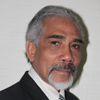
Vice Minister of Secondary Education
Virgílio Simith
To the Vice Minister for Secondary Education competes to propose and ensure policies on secondary education and special procedures for integrating education, for the promotion of recurrent education and lifelong learning; participate in the definition and execution of qualification policies and professional training; defining the national curriculum in all levels of education and the system of student assessment and approve the curricula, as well as guidelines for its implementation and promoting and managing the development and upgrading of schools facilities on public non-higher education buildings, and support initiatives within the private and cooperative education.
The Vice Minister for Secondary Education assists the Minister for Education.

Vice Minister of Higher Education
Marçal Avelino Ximenes
The Vice Minister for Higher Education has competences to design policy measures in the areas of higher education, science and technology as well as its organization, funding, execution and evaluation; promote equal opportunities for the access to higher education; promote development, modernization, quality, competitiveness and international recognition to systems of higher, scientific and technological education, as well as promoting the link between higher education, scientific and technological institutions, and between them and the productive system and promote permanent evaluation and inspection of higher education, science and technology institutions.
The Vice Minister for Higher Education assists the Minister for Education.
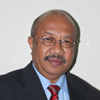
Vice Minister of Commerce, Industry and Environment
Abel da Costa Ximenes
In the Vice-Minister for Commerce, Industry and Environment are delegated the following competences: help stimulating economic activity, including what concerns to the national and international competitiveness; to support the activities of economic agents, promoting the necessary steps to the enhancement of solutions that make the procedure simpler and quicker; promote the development of the cooperative sector, particularly in rural areas and in agriculture sector, in coordination with the Ministry of Agriculture and Fisheries; disseminate the importance of the economic cooperative sector, and micro and small businesses and promote training in the creation, organization, management and accounting of cooperatives and small businesses and organize and administer a register of cooperatives.
The Vice-Minister for Commerce, Industry and Environment assists the Minister for Commerce, Industry and Environment.
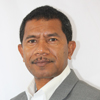
Vice Minister of Social Solidarity
Jacinto Rigoberto de Deus
It is upon the Vice Minister for Social Solidarity to develop programs of social assistance and humanitarian aid to the most disadvantaged; to propose and develop policies and strategies in managing disaster risks; develop and implement programs in disaster risk management, in particular, civic education, prevention, mitigation, emergency response and recovery after a disaster and provide monitoring, protection and community reintegration to other vulnerable groups.
The Vice Minister for Social Solidarity assists the Minister for Social Solidarity.

Vice Minister for Transport and Communications
Flávio Cardoso Neves
The Vice Minister for Transport and Communications has competencies to develop and regulate the activity of communications and optimize the communications infrastructures; ensure the coordination of the transport sector and stimulate the complementarity between its various modes, as well as their competitiveness in order to a better customer satisfaction; promote the management, as well as the adoption of technical and regulation standards, concerning the public use of communication services; ensure the provision of public telecommunications services, and the use of radio electrical space through public institutions or the grant of public service delivery to private entities; manage the government information technology system and ensure the provision of its services, and implement information systems throughout the country.
The Vice Minister for Transport and Communications assists the Minister for Transport and Communications.
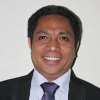
Vice Minister of Agriculture and Fisheries
Marcos da Cruz
It is for the Vice Minister for Agriculture and Fisheries to: ensure the implementation and continuity of rural development programs, in coordination with the Ministry of Commerce, Industry and Environment; create centres of technical assistance to farmers; to manage the technical and agricultural education; promote agricultural research, control the use of land for agriculture and livestock production and promote, in coordination with the Ministry of Commerce, Industry and Environment, rural development, implementing a cooperative system of production and marketing of agricultural production.
The Vice Minister for Agriculture and Fisheries assists the Minister for Agriculture and Fisheries.

Secretary of State of the Council of Ministers
Avelino Coelho
The Secretary of State of the Council of Ministers provides support to the Prime Ministers and to the Minister of State and of the Presidency of the Council of Ministers, aiming the coordination of the legislative process of the Government.
It is also upon him to provide technical, administrative and logistical support to the meetings of the Council of Ministers; ensure the publication of Government legislation, in the Official Gazette; promote the correct publication of the Government’s legislative diplomas and those from the remaining State organisms and ensure the accomplishment of rules and procedures from the Council of Ministers.
It is delegated upon the Secretary of State of the Council of Ministers the responsibility of “Gráfica Nacional”.

Secretary of State for Parliamentary Affairs
Maria Terezinha Viegas
The Secretary of State for Parliamentary Affairs assists the Prime Minister in the relationship of the Government with the National Parliament and parliamentary groups.
It is delegated, upon the Secretary of State for Parliamentary Affairs, the responsibility over the Office of Parliamentary Support.

Secretary of State for Media
Nélio Isaac Sarmento
The Secretary of State for Media assists the Prime Minister and the Minister for the Presidency of the Council of Ministers in the area of Media.
It is upon him to propose policies and formulate the necessary regulation projects in the media sector in general; exercise supervision over the state media and ensure the dissemination of information at national and international level.
It is delegated upon the Secretary of State for Media the responsibility over the National Directorate for Information Dissemination and the Centre for Community Radios.

Secretary of State for Institutional Strengthening
Francisco Soares
The Secretary of State for Institutional Strengthening assists the Prime Minister in the area of Institutional Strengthening.
It is upon the Secretary of State for Institutional Strengthening the following: propose plans and policies for public administration’s streamlining and support their implementation in all state institutions to improve service delivery to the public; coordinate, with state institutions, the implementation of procedures for institutional communication; ensure the efficiency, communication and image enhancement of institutions; ensure that all institutions have operational plans for the internal functioning and training of employees; support capacity development on planning and reporting across the Government; propose, to the relevant entities, a continuous training plan to all technicians, across identified areas, in different state institutions, aiming to ensure the efficiency of service provision; coordinate, with state institutions, the most effective approach for this capacity building; propose to the competent authorities, when appropriate, acts of supervision and auditing, to ensure the streamlining of public administration, ensuring greater efficiency in service delivery; ensure training and on-going assistance to future preparatory commissions for municipalities, in coordination with the Ministry of State Administration, the Ministry of finance and other relevant institutions.

Secretary of State for Support and Promotion of the Private Sector
Veneranda Martins
The Secretary of State for Support and Promotion of the Private Sector assists the Prime Minister in the area of the relationships of the State with the private economic sector.
It is delegated upon the Secretary of State for Support and Promotion of the Private Sector the following: propose policies, legislation and establish mechanisms related with the promotion of private investment and the State support to private investment in articulation with other relevant entities; propose and implement the support plan for the development of the national private sector; promote discussions with national private sector aiming their participation in the country’s development and the search of a solution for the problems of unemployment and lack of labour ethics; promote the dialogue with the private sector aiming a level of performance, related with the difficulties and obstacles faced, in its relation with the State institutions; submit proposals, after the private sector’s consultation, about the formulation of policies, support mechanisms and incentives, when relating with finance and banking institutions; manage the budget allocated to the promotion of private business sector’s development and promote the establishment of the National Development Bank, in articulation with the Ministry of Finance and the Central Bank.
The Institute for Business Development Support, the Specialized Investment Agency, the National Bank of Commerce of Timor-Leste and the Bamboo Centre are under the responsibility of the Secretary of State for Support and Promotion of the Private Sector.

Secretary of State for the Promotion of Equality
Idelta Maria Rodrigues
The Secretary of State for the Promotion of Equality assists, under the n.1, of article 10th, the Vice Prime Minister in the design, implementation, coordination and evaluation of the policy, defined and approved by the Council of Ministers, for the areas of promotion of gender equality.
The Secretary of State for the Promotion of Equality has competences to support the development of global and sectoral policy regarding the promotion of equality and the strengthening of the role of Timorese women in society; develop policy proposals, express opinions and intervene, under the law, in transverse fields, in all areas, relevant to the promotion of equality; establishing mechanisms for the review of laws, policies, budget and Government programs, in areas under their responsibility; coordinate, with various ministries, concerted actions to promote equality and strengthening of the role of women; develop partnerships and provide support to women’s organizations, involved in the promotion of gender equality ensuring mechanisms of consultation with the civil society, other Government institutions and international organizations; promote public awareness campaigns and the adoption of good practices in terms of gender equality, equal participation in economic, social, political and family life and fighting discrimination and violence against women; keep the public informed and aware about issues related to gender equality and women’s rights, using the media, editing publications or other appropriate means; ensure arrangements for the participation of institutional and non-governmental organizations, that contribute to the achievement of gender equality policies, as well as giving technical skills and certify skills of people and entities involved in the promotion of gender equality and cooperate with Community and International organizations and with foreign counterparts in order to participate in major international guidelines related to gender equality and promote their implementation at national level.

Secretary of State of Youth and Sports
Miguel Manetelo
The Secretary of State for Youth and Sports assists, in accordance with n. 1 of article 10th, the Vice Prime Minister, in the design, implementation, coordination and evaluation of the policy, defined and approved by the Council of Ministers, for the areas of the promotion of the well-being and youth and sports’ development.
It is for the Secretary of State for Youth and Sports to propose the policy, and prepare the necessary draft regulations, for the areas of youth and sports; ensure the implementation and enforcement of the legal and regulatory activities, related to youth and sport; promote the activities for young people, especially in the fields of sports, art and culture and establish mechanisms for collaboration and coordination with other Government bodies, responsible for related areas.
It is delegated, to the Secretary of State of Youth and Sports, the responsibility over the National Sports Commission (NSC) and the Regulatory Commission of Martial Arts (RCMA).
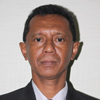
Secretary of State for Professional Training and Employment Policy
Ilídio Ximenes da Costa
The Secretary of State for Professional Training and Employment Policy assists, in accordance with n. 1 of article 10th, the Deputy Prime Minister in the design, coordination and evaluation of the policy defined and approved by the Council of Ministers, for the areas of labour, professional training and employment.
He is responsible for proposing the policy and elaborate the draft regulations for the areas of labour, professional training and employment, promoting, with the relevant institutions, programs and activities in the areas of labour, vocational training and employment; promote the tripartite relationship between the Government, workers and employers, in order to prevent disputes; promote the services of mediation, conciliation and arbitration in the context of labour relations; encourage the recruitment of Timorese workers outside the country; regulate and supervise the work of foreigners in Timor-Leste; monitor compliance with the laws on labour, promote and oversee the Health, Safety and Hygiene at work and establish mechanisms for collaboration and coordination with other Government bodies, responsible for related areas.
It is delegated, in the Secretary of State for Vocational Training and Employment Policy, the responsibility over National Centre for Professional Training and Employment of Tibar, the National Centre for Professional Training of Becora and the National Institute of Development of Work Force and the General Labour Inspectorate.

Secretary of State for ASEAN Affairs
Roberto Soares
It is the competence of the Secretary of State for ASEAN Affairs to plan and execute the preparation for the accession of Timor-Leste to the Organization of Southeast Asian Nations (ASEAN), and ensure the representation of the country in its meetings and activities.
The State Secretary for ASEAN Affairs assists the Ministry of Foreign Affairs and Cooperation.

Secretary of State for Defence
Júlio Tomás Pinto
The Secretary of State for Defence has the competences to propose the policy and elaborate the necessary regulation drafts to his areas of responsibility; celebrate, in coordination with the Ministry of Foreign Affairs, international agreements on defence and military cooperation; manage and supervise the Armed Forces of Timor-Leste; promote the adequacy of military means; supervise maritime and aerial navigation for military purposes and establish mechanisms for collaboration and coordination with other Government bodies with responsibility over related areas.
The Secretary of State for Defence assists the Minister for Defence and Security.
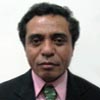
Secretary of State for Security
Francisco Guterres
It is upon the Secretary of State for Security: to propose the policy and draft regulations necessary to his areas of responsibility; to exercise oversight over the police forces in Timor-Leste; promote the adequacy of police means; ensure the security of the State’s real estate; monitor and control the activity of private security; promote the development of prevention strategy, mediation and community conflict resolution; exercise tutelage over migration services; monitor the sea and aerial navigation with civilian purposes; ensure the safety of persons and property in the event of fires, floods , landslides, earthquakes and all endangering situations; develop, in coordination with other entities, civic education programs to address natural or other disasters caused by the human action; cementing social solidarity and establish mechanisms for collaboration and coordination with other Government bodies, responsible for related areas .
The Secretary of State for Defence assists the Minister for Defence and Security.
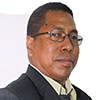
Secretary of State for Land and Property
Jaime Xavier Lopes
The Secretary of State for Land and Property has competence to organize the registry of rural and urban buildings and the registry of real estate and administrate and perform the current management of the State’s Real Estate.
The Secretary of State for Land and Property assists the Minister for Justice.
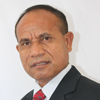
Secretary of State for Local Development
Samuel Mendonça
It is for the Secretary of State for Local Development to be responsible for promoting and executing policies on local and rural development and reducing economic and social inequalities between regions; coordinate and distribute information to internal and external structures of Local State Administration and coordination of the Sucos’ Program Development, the District Integrated Development Plan and the Housing Program "MDGs".
The Secretary of State for Local Development assists the Minister for State Administration.
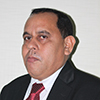
Secretary of State for Administrative Decentralization
Tomás Cabral
It is for the Secretary of State for Administrative Decentralization: to coordinate and supervise the activities of districts and sub-districts administration, other authorities and local administration bodies; to promote and lead the process of administrative decentralization and the creation of municipalities and perform the management of the Decentralized Development Program.
The Secretary of State for Administrative Decentralization assists the Minister for State Administration.

Secretary of State of Commerce
Ricardo Cardoso Nheu
In the Secretary of State of Commerce are delegated the following competences: analyse and license installation and operating projects of commercial ventures; inspect and supervise activities and business ventures, under the law; maintain and manage an information and documentation centre on companies and promote the internal rules and international standardization, metrology and quality control, measurement standard of units and physical magnitude.
The Secretary of State of Commerce assists the Minister for Commerce, Industry and Environment.

Secretary of State of Industry and Cooperatives
Filipus ‘Nino’ Pereira
In the Secretary of State of Industry and Cooperatives are delegated the following competences: analyse and license projects of industrial facilities and operations; inspect and supervise activities and industrial ventures, under the law; maintain and manage an information centre and documentation on companies; propose the qualification and classification of industrial ventures, in accordance with applicable legislation; disseminate the importance of cooperative economic sector and micro and small businesses and promote training in the design, organization, management and accounting of cooperatives and small businesses and organize and manage the registration of industrial property.
The Secretary of State of Industry and Cooperatives assists the Minister for Commerce, Industry and Environment.
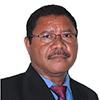
Secretary of State of Environment
Nominando Soares Martins ‘Buras’
To the Secretary of State of the Environment are delegated the following competences: draft environmental policy and assess the results achieved; promote, monitor and support strategies to integrate the environment into sectorial policies; carry out strategic environmental assessment of policies, plans, programs and legislation and coordinate processes of environmental impact assessment of projects nationwide, including public consultation procedures; ensure, in general terms and in terms of environmental licensing, the adoption and enforcement of preventive and integrated pollution control facilities covered by it.
The Secretary of State of the Environment assists the Minister for Commerce, Industry and Environment.
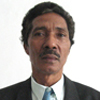
Secretary of State for Social Security
Vítor da Costa
The Secretary of State for Social Security is responsible to design and implement social security systems for workers and the general population.
The Secretary of State for Social Security assists the Minister for Social Solidarity.
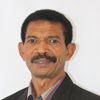
Secretary of State for the Combatants for National Liberation Affairs
Júlio Sarmento da Costa
It is for the Secretary of State for the Combatants for National Liberation Affairs to promote demobilization programs, pensions and retirement to be allocated to the National Liberation Combatants and provide monitoring and social inclusion to veterans and National Liberation Combatants.
The Secretary of State for the Combatants for National Liberation Affairs assists the Minister for Social Solidarity.
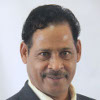
Secretary of State for Public Works
Luís Vaz Rodrigues
The Secretary of State for Public Works is competent to create and implement the legal and regulatory framework of the construction activity and the research on construction materials; study and perform works for the protection, maintenance and repairs of bridges, roads, river coasts and sea coasts particularly aiming flood control; propose and develop a national housing policy and spatial planning; propose and develop urban planning, establish coordination and promote the quality of physical projects, executed by the state, and promote the completion of construction works, maintenance and repair of public buildings, monuments and special facilities, where such is legally committed.
The Secretary of State for Public Works assists the Minister for Public Works.

Secretary of State for Electricity
Januário Pereira
It is for the Secretary of State for Electricity to coordinate the renewable energy sector and encourage complementarity between its various modes, as well as their competitiveness in order to better customer satisfaction; develop the legal and regulatory framework of activities related to renewable energy resources, regulate, in coordination with other ministries, operators in the production of electricity; develop studies on the capacities of renewable energy resources and alternative energy and maintain a file of information on operations and renewable energy resources.
The Secretary of State for Electricity assists the Minister for Public Works.
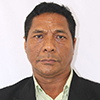
Secretary of State for Water, Sanitation and Urban Development
Elias Pereira Moniz
It is upon the Secretary of State for Water, Sanitation and Urban Development to promote the study and implementation of new infrastructure network systems pertaining to the distribution of water and sanitation, and supervise its operation and exploitation, without prejudice to the tasks of these areas attributed to other organisms.
The Secretary of State for Water, Sanitation and Urbanization assists the Minister for Public Works.

Secretary of State for Forestry and Nature Conservation
João Fernandes
It is upon the Secretary of State for Forestry and Nature Conservation to manage National Parks and Protected Areas and to ensure the protection and conservation of nature and biodiversity, overseeing the implementation of the policy and monitoring activities detrimental to the integrity of the fauna and flora, in collaboration with the entities related.
The Secretary of State for Forestry and Nature Conservation assists the Minister for Agriculture and Fisheries.
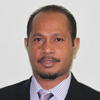
Secretary of State for Fisheries
Rafael Pereira Gonçalves
The Secretary of State for Fisheries has the competencies of the Ministry of Agriculture and Fisheries regarding fishing activity.
The Secretary of State for Fisheries assists the Minister for Agriculture and Fisheries.

Secretary of State for Livestock
Valentino Varela
The Secretary of State for Livestock has the competencies of the Ministry of Agriculture and Fisheries regarding livestock production.
The Secretary of State for Livestock assists the Minister for Agriculture and Fisheries.
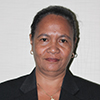
Secretary of State for Art and Culture
Maria Isabel Ximenes
It is upon the Secretary of State for Art and Culture to develop the policy and regulations for the conservation, protection and preservation of historical and cultural heritage; propose policies for the definition and development of culture; establish cooperation policies and cultural exchange with the countries of the CPLP and cultural organizations and countries in the region; establish policies for cooperation with UNESCO; promote the creation of the National Library and the National Museum; develop programs, in coordination with the Ministry of Education, to introduce the teaching of culture in Timor-Leste; ensure the appropriate preservation of official and historical documents; promote the creation of the Academy of Arts and Creative Cultural Industries of Timor-Leste.
The General Directorate for Culture, the Implementation Unit for the Academy of Arts and Creative Cultural Industries of Timor-Leste and the Monitoring Committee of the Academy of Arts and Creative Cultural Industries of Timor-Leste, which becomes part of the Ministry of Tourism, are also under the authority of the Secretary of State for Art and Culture.
The Secretary of State for Art and Culture assists the Ministry of Tourism.










































